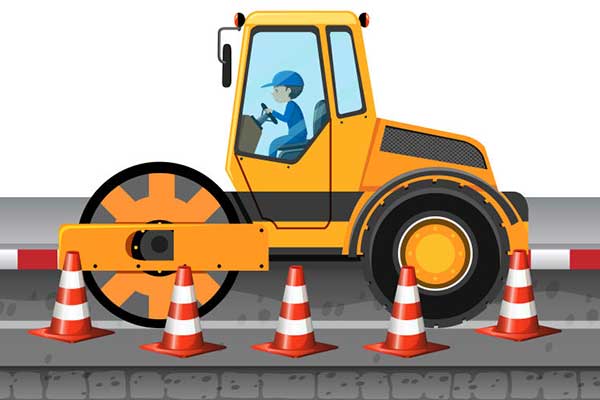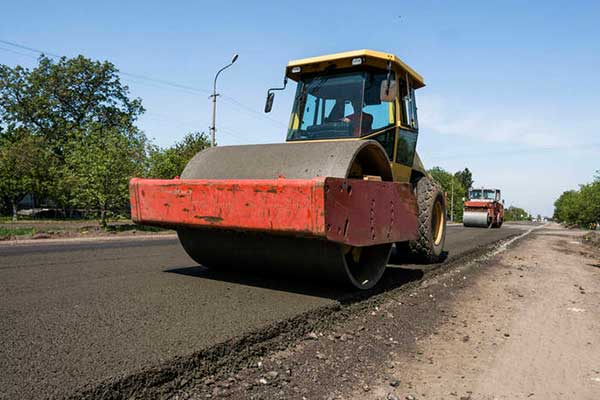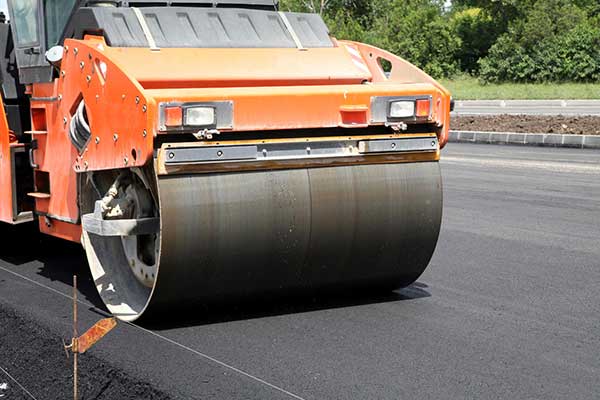Road Rollers: What You Need to Know
When driving past a construction site, you’ve likely noticed large, cylindrical machines methodically flattening the ground. These are road rollers, essential equipment in the realm of construction. But what exactly is a road roller, and why is it so vital? Let’s delve into the world of road rollers, their types, functions, and significance.

What is a Road Roller?
A road roller, also known as a roller-compactor, is a heavy construction machine used to compact soil, gravel, concrete, or asphalt. The goal of compaction is to increase the density of the material, which enhances its stability and load-bearing capacity. This process is crucial for constructing durable roads, foundations, and other infrastructure.
Types of Road Rollers
Road rollers come in various types, each designed for specific applications:
1. Smooth Wheeled Rollers
- Static Rollers: These have a smooth drum and rely solely on their weight to compact materials. They are ideal for finishing surfaces.
- Vibratory Rollers: Equipped with a vibrating drum, these rollers are more effective in compacting loose materials like sand and gravel.
2. Pneumatic Rollers
These rollers use air-filled tires to compact the surface. The tires can adjust their pressure to provide different compaction levels, making them versatile for various materials and conditions. Pneumatic rollers are often used for finishing jobs and in areas where a smooth surface is critical.
3. Sheepsfoot Rollers
Named for their studded drums, these rollers are perfect for compacting fine-grained soils. The protrusions penetrate the soil, compacting it from the bottom up.
4. Grid Rollers
These have a grid-like pattern on their drums, making them suitable for crushing and compacting rocks and gravel.

How Do Road Rollers Work?
The primary function of a road roller is to apply pressure on a surface to compact it. The process typically involves several passes over the area being compacted. For static rollers, the sheer weight of the machine compresses the material. Vibratory rollers, on the other hand, use both weight and mechanical vibrations to achieve deeper compaction. Pneumatic rollers distribute the load across multiple tires, which can be adjusted to achieve the desired compaction level.
Key Components of a Road Roller
Understanding the main components of a road roller can provide insight into how these machines operate:
- Drum/Drums: The large cylindrical components that make contact with the ground. They can be smooth, padded, or grid-like, depending on the roller type.
- Engine: Powers the machine, with modern rollers often equipped with diesel engines for maximum efficiency.
- Vibration Mechanism: Found in vibratory rollers, this system generates vibrations to aid in compaction.
- Operator Cab: The space where the operator controls the roller. It typically includes controls for steering, speed, vibration, and other functions.

Advantages of Using Road Rollers
Utilizing road rollers in construction projects offers several key benefits:
- Enhanced Stability: Compacting the ground with a road roller ensures a stable surface, reducing the likelihood of shifting or settling over time.
- Increased Longevity: Proper compaction extends the lifespan of roads, foundations, and other structures by preventing cracks and other damage that can result from an unstable base.
- Improved Surface Quality: Road rollers create smooth and even surfaces, essential for roads, runways, and other areas where a high-quality finish is crucial.
- Efficiency: Modern road rollers are designed for efficiency, completing compaction tasks quickly and effectively, which can significantly speed up construction projects.
Applications of Road Rollers
Beyond road construction, road rollers are used in various other projects:
- Parking Lots
- Airports
- Dams
- Railway Tracks
- Building Foundations
Each application may require different types of rollers to achieve optimal results.
Conclusion
Road rollers are fundamental to the construction industry, playing a crucial role in creating stable and durable surfaces. Whether for building roads, preparing foundations, or landscaping, these machines ensure that the ground beneath our feet is solid and secure.

